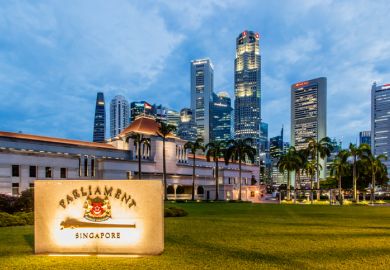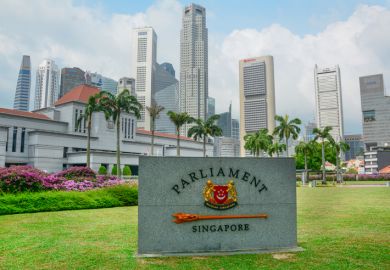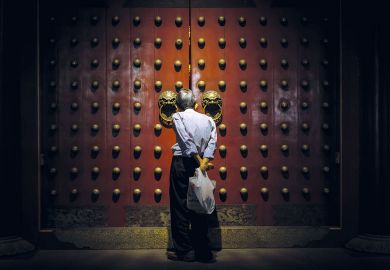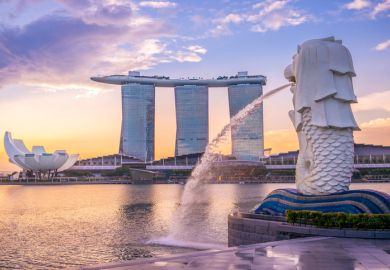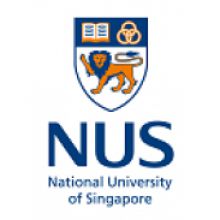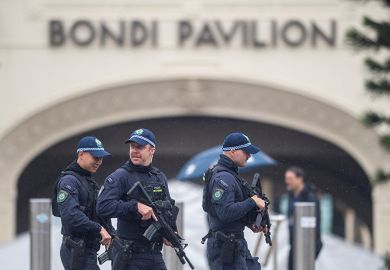Singapore’s top-ranked university has introduced a framework for assessing potential campus speakers’ suitability, a year after the disinvitation of a scholar sparked concerns about academic freedom.
Documents seen by Times Higher Education show that anyone organising events in the National University of Singapore’s Faculty of Arts and Social Sciences must score proposed speakers’ research areas, presentation topics and profile based on how controversial and politically sensitive they are perceived to be.
The guidance form says the total score, which ranks potential speakers from low to high risk, will “determine the admin[istrative] formalities procedures required”.
Event organisers are also told to conduct a “mandatory” Google search “to identify the speaker’s profile and look for any past controversies”.
In the case that a speaker falls in the “moderate risk zone”, the organiser may be able to apply for a waiver at the discretion of the dean under certain circumstances, including if they are a “last-minute inclusion”.
For any that fall in the “higher risk zone”, the form states that “admin formalities” are required, but it does not detail what these are.
Organisers wishing to plan events with external partners are also required to complete a separate form, which must be approved by the dean before they go ahead. The form includes similar questions about the “risk” of controversial topics being discussed at the event, as well as the details of any individuals “who may draw public attention at the event”.
It follows the case of a Filipino scholar who was disinvited from a conference at NUS last year.
Sol Iglesias, an assistant professor of political science at the University of the Philippines, was due to speak on a panel in January 2024, but was informed three months before that she could no longer participate.
Dr Iglesias believes she was disinvited because of the activism work of her husband, Singaporean historian and democracy activist Thum Ping Tjin, also known as PJ Thum.
What can universities do to protect academic freedom?
Singapore’s Ministry of Education later issued a statement saying that universities were free to decide which speakers they wish to invite, but they should be “aware that they must respect Singapore’s wider social norms and act in line with national interests”.
The government said it may “advise” universities on these principles, which critics have suggested is concerning.
Speaking to Times Higher Education, Dr Iglesias, who is also a board member of the newly created Southeast Asian Coalition for Academic Freedom, described NUS’ new framework as “inimical to free speech in general and academic freedom in an institutional setting”.
“Of course, universities will have some kind of concern for institutional reputation,” she said. However, she added that members of faculty should be “trusted” to make decisions about speakers and “knowing who an appropriate…person is”.
“The bigger issue with this, I think, is that a university setting should primarily be one of society’s spaces for forging controversy, not avoiding it. We are supposed to be a venue for public debate, for policy debate and this kind of measure…pre-empts faculty from even thinking along those lines.”
NUS did not respond to a request for comment.
Register to continue
Why register?
- Registration is free and only takes a moment
- Once registered, you can read 3 articles a month
- Sign up for our newsletter
Subscribe
Or subscribe for unlimited access to:
- Unlimited access to news, views, insights & reviews
- Digital editions
- Digital access to THE’s university and college rankings analysis
Already registered or a current subscriber?

